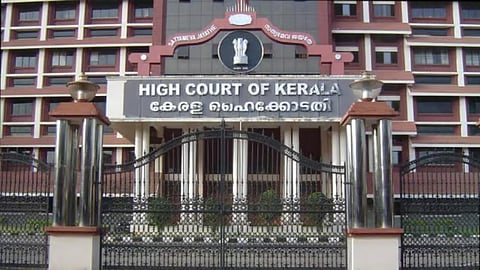

The Kerala High Court, on Tuesday, August 13, upheld the order of the State Information Commission and allowed for the release of the Justice Hema Committee report, after determining there was no breach of privacy. The court had earlier ordered an interim stay on the release of the report, following a petition by a Kerala film producer. The court underscored the importance of media, debates and discussions in the public domain when dismissing a petition that challenged the publication of the report.
The court also ruled that the petitioner in the case, producer Sajimon Parayil, had no locus standi to file the petition as his legal or fundamental rights were not affected. The court had earlier stayed the release of the report on July 24, after Sajimon argued that the disclosure was “fundamentally against public interest and violates the right to privacy” of several persons in the industry. The order of the court has paved the way for the release of the long-awaited report, which was mandated to look into the challenges faced by women in the Kerala film industry.
The committee, headed by former Justice K Hema, was formed in the aftermath of the sexual assault of a female actor in a moving car in Kochi in 2017. The committee submitted the report to the Kerala government in 2018, but it was not released to the public. On July 6, the State Information Commission (SIC) passed an order directing the Kerala government to issue the committee report to RTI applicants before July 2, after redacting information that could identify individuals mentioned in the report, as prohibited under the Right to Information (RTI) Act.
On July 24, the day of the report’s scheduled release, producer Sajimon Parayil approached the court claiming that the report would affect his right to privacy and that he might become a scapegoat if his name was mentioned in it. He also argued that the disclosure of the report would “breach” confidentiality promised to the witnesses who deposed before the committee, and violate their fundamental right to privacy. The report was scheduled to be released by 4 pm on July 24 and was stayed at around 3 pm the same day.
Sajimon claimed that even if the report was released after redacting some portions, it would be possible to identify the persons who had given the statement and persons against whom allegations were made, thereby breaching their privacy. However, SIC argued that the report had no evidence to indicate the persons or any identification of those who were involved.
The court observed that while the right to information was essential to make citizens a part of the governing process, the right to privacy was the right to control personal information and protect it from unauthorised access, use or disclosure. Stating that the conflict between these two rights could lead to “complex ethical dilemmas and legal imbroglio,” the court ruled that there was no such dilemma in the present case.
“...the State Information Commission having incorporated sufficient safeguards in its order to ensure that the privacy of individuals is not breached by issuing copies of the redacted report. While the petitioner's submission is based on mere speculation, the State Information Commission, after careful scrutiny of the document, has vouched that the privacy and anonymity of third parties will not be compromised,” the court said.
Justice VG Arun observed that for any recommendations by the committee to be implemented, there had to be debates and discussions in the public domain, prompting the government to act expeditiously. “This can be achieved only by understanding the reasons that led to the recommendations in the report. The media has a major role in initiating such discussions. Therefore, the apprehension that the applicants may utilise the report to malign individuals is misplaced. The apprehension is based on a misconception about the role of media in nation-building,” the court said.
Speaking about the public interest of Sajimon to file the petition, the court said that only a person who had suffered or suffered from legal injury can challenge the act/action/order etc. “A person shall have no locus standi to file a writ petition, unless he is personally affected by the impugned order or his fundamental rights have been directly or substantially invaded or there exists an imminent danger of such rights being invaded,” Justice Arun said and added that Sajimon failed to demonstrate how his legal or fundamental rights were affected by the order of SIC ordering the release of the report.
The court also added that Sajimon’s contentions lost significance when compared to the public interest involved in disclosing the contents of the report.